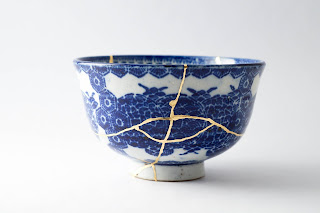Contrary to popular Christian belief, Adam was not made perfect. I know many people believe that, but if he was, then he would have never sinned. Mankind, all of us, are flawed, and it’s on purpose. But why? Why would God make us imperfect on purpose? For contrast, as I said earlier. Mankind had to fall in order to experience God’s grace. God foreknew, and dare I say, I believe that He wanted Adam to sin!
What’s this that I hear some of you say? God is so holy that He can’t look on sin? Look at who He calls, and how unworthy they are. Some examples are Noah (yeah, he wasn’t perfect, either, sorry1), who got drunk until he passed out; Gideon who was a coward and didn’t want to face the danger of battle; Rahab the harlot; David, who was an adulterer and a murderer, Judas and Peter, one gave Him over to the Chief Priests to be killed, the other denied the Christ to avoid persecution (and He knew that they would); and, of course, the insane mass-murderer and persecutor of the early church, Saul of Tarsus. Look at these people that He used for His purposes, and tell me that He cannot look on “sin.” His Son washed the feet of the disciples, knowing full well who would give Him over to death.
The Japanese have this beautiful concept called “kintsukuroi (alternatively, Kintsugi).” It means “golden repair” and is when common display pottery breaks into pieces, and it is then “set right” again with silver or gold to “glue” and reunite the sides of the broken pottery back together. From a website,
“Kintsugi is quite akin to the technique of maki-e. The underlying philosophy of kintsugi is that breakage and repair are treated as part of the natural history of an object, instead of something that must be disguised. Cracked or broken ceramic vessels are made immensely beautiful by highlighting the repairs with gold or silver.”
(Source: https://www.ststworld.com/kintsukuroi-art/)
Another website says this about the practice,
“These
days, would you even consider a broken ceramic bowl worth repairing,
let alone consider it more beautiful for having been broken? Probably
not. No, of course not.
But slow down a minute.
Consider the bowl, made by hand with maleable clay and fired to a
couple thousand degrees, forever altering its molecular structure.
The bowl's creator strived to create perfection.
A
handmade object, like a bowl or cup, is revered for the care it took
to make it, its beauty, and its purpose. But broken, the object is
demoted and loses its honor, so to speak. Repaired, however, can
raise the object to a whole new level of appreciation. Not a common
idea in western culture.
Some
people, more scholarly and patient than I, attribute the origin of
the repaired-ceramics artform to story from the mid-1500s. The story
goes like this. A great military leader (with a supposedly hot
temper) was given a beautiful bowl for an important tea ceremony.
Someone dropped the bowl, which broke into five pieces….One of the
guests spoke up with an improvised poem cleverly linking the name of
the giver of the bowl, the style of the bowl, and the five broken
pieces, making them all laugh and avoiding the wrath of the
hot-headed leader. This specific bowl has since become quite famous,
and is considered now an "Important Cultural Property."
This
essay goes on to say that instead of the break "…diminishing
[the bowl's] appeal, a new sense of its vitality and resilience
raised appreciation to even greater heights." The bowl has
become more beautiful for having been broken. The true life of the
bowl "…began the moment it was dropped…"
"So
it is not simply any mended object that increases in its
appreciation but…the gap between the vanity of pristine appearance
and the fractured manifestation of mortal fate which deepens its
appeal."
In other words, the proof
of of its fragility and its resilience is what makes it beautiful.”
(Source: http://www.camiimac.com/good-juju-today-blog/kintsukuroi-more-beautiful-for-having-been-broken)
I couldn’t agree more! This is a beautiful picture of how God will set all of His Creation right! Jesus is the “gold.” We are the broken pieces of pottery. And we will, as the article said, “become more beautiful for having been broken!” God is the potter. He knows what He is doing! Trust Him, lean on Him. He has promised to never leave us nor forsake us (Deut 31:6)! I’ve read once that the Hebrew of the word “never” in that verse is the word “לֹא or lo” (Strong’s Hebrew #3808) which is defined as “not” but God goes further than that. In Hebrews 13:5, this verse is repeated. Only this time, it is written as, “Οὐ μή σε ἀνῶ οὐδ’ οὐ μή σε ἐγκαταλίπω·” which, translated into English, it reads, “Never not you will I leave, nor never not you will I forsake” (underline mine). It is a double-negative statement, the strongest form of denial known to the Hebrews! In other words, God said to His people, “Never, never will I leave you; never, never will I forsake you!” That should give all of us great comfort in knowing that God our Savior will always be by our side!! Praise and bless the Lord always!
1 The text of Genesis 6:9 says that “Noah was a just man and perfect in his generations.” That means, I believe, that his bloodline (his DNA) was perfect and uncorrupted, not that he was morally perfect. Go here to learn more: https://www.wiseandgentle.com/post/the-days-of-noah-and-god-s-judgement


Comments
Post a Comment